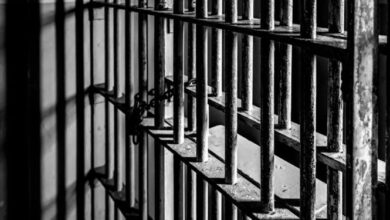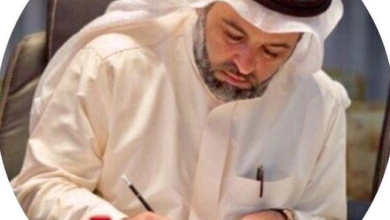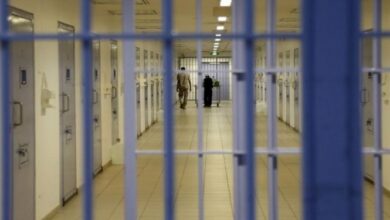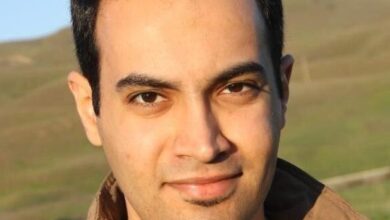Twitter campaign in solidity with prisoners of conscience at the light Coronavirus danger
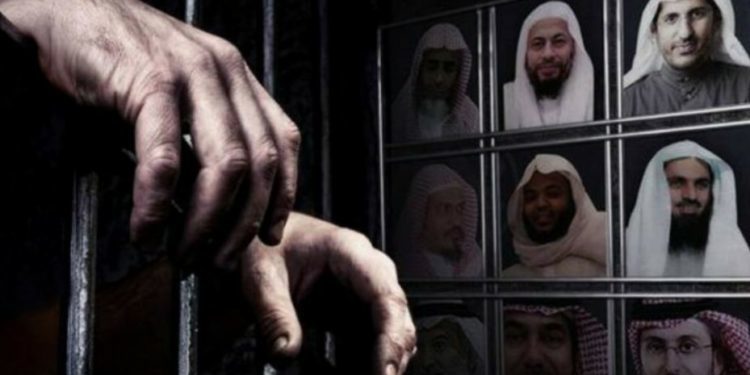
Human rights groups and bloggers launched a campaign on social media to demand the release of prisoners of conscience in the prisons of the Saudi regime, with an increased risk of an outbreak of the Coronavirus.
The campaign came in light of the real danger to the lives of prisoners of conscience, in light of the deteriorating prison conditions and the absence of adequate health care.
Dozens of activists, families and relatives of some of the detainees participated in the campaign, including Lina Al-Hathloul, sister of the detained activist Lujain Al-Hathloul.
Al-Hathloul said that she is calling for the release of the detainees, especially her sister, given the real danger posed by the spread of Coronavirus.
Activists have warned that there is a large group of elderly people in prison, who are more vulnerable to being affected by the Coronavirus.
The number of cases of infection with the Coronavirus in the Kingdom to 103 cases. As a precaution, the Saudi authorities have suspended all visits to prisons, which increases the concern of the detainees’ families.
Thousands of citizens and residents are arrested by the Kingdom on backgrounds related to the dissemination of political opinions and human rights claims, in addition to a group who were arrested despite their complete disengagement from public affairs.
Prisoners of conscience in the Saud prisons are subjected to deliberate neglect and not being allowed to take medication regularly, as is the case with Salman Al-Awda and Awad Al-Qarni.
Since he came to the authority, Crown Prince Mohammed bin Salman has transformed the prisons of the authorities in the Kingdom into human slaughterhouses and mass graves. Those who enter them are subjected to the worst forms of torture and abuse due to ill-treatment and medical neglect.
Many prisoners of conscience have died in prisons in the Saudi authorities since Muhammad bin Salman came to power, including: Sheikh Fahad Al-Qadi, Sheikh Suleiman Al-Duwaish, Sheikh Ahmed Al-Ammari, writer Turki Al-Jasser, and Major General Ali Al-Qahtani.
He also died inside the prisons of Al Saud: the popular artist Muhammad Bani Al-Ruwaili, the young man Hassan Al-Ribh, Sheikh Saleh Al-Damiri, Ahmed Al-Shaya, Bashir Al-Mutlaq, and Muhammad Rassab Al-Hassawi.
It is believed that other names may have died and were not disclosed by the Al Saud authorities.
Bin Salman uses the method of repression with all his opponents and all the citizens of the Kingdom, as he rules the kingdom with an iron fist through the detention campaigns he supervises and through the physical and psychological torture of detainees in prisons.
Over the past two years, the Kingdom has witnessed the arrest of hundreds of activists and human rights activists, who apparently tried to express their opinion that opposes the Kingdom’s changes, amid human rights demands to reveal their fate and provide them with justice.
Several international organizations called for an international investigation to be conducted into the conditions of prisoners of conscience in Saud prisons, especially in light of the ill-treatment and torture they are subjected to.
The organizations have strongly condemned the poor conditions of prisoners of conscience in the Kingdom, which has a poor record of treating detainees opposed to the regime, including suspicions of torture and medical neglect.
It also called for an independent international investigation into the poor conditions of the detention of dissidents in Saudi prisons, and the authorities in the Kingdom ignored the demands for providing them with health care and stopping violations of ill-treatment and forms of psychological and physical torture against them.
Human rights organizations – including Amnesty International and Human Rights Watch – have revealed in various reports that detainees of conscience in Saudi prisons have been subjected to various methods of torture that sometimes do not differentiate between the detainee’s age or gender.
Human rights organizations have reported that women prisoners of conscience and human rights activists detained are subjected to degrading treatment and sexual harassment.

